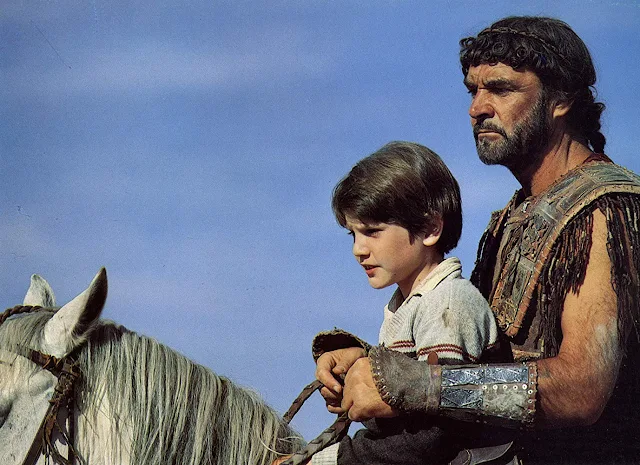 |
| Stepin Fetchit and Will Rogers in Judge Priest |
Cast: Will Rogers, Tom Brown, Anita Louise, Stepin Fetchit, Hattie McDaniel, Henry B. Walthall, David Landau, Rochelle Hudson, Charley Grapewin, Berton Churchill.
Screenplay: Dudley Nichols, Lamar Trotti,
based on stories by Irvin S. Cobb.
Cinematography: George Schneiderman.
Art direction: William S. Darling.
Film editing: Paul Weatherwax.
Music: Samuel Kaylin.
John Ford's
Judge Priest fits neatly into that period, roughly from 1915 (the year of D.W. Griffith's
The Birth of a Nation) to 1939 (the year of David O. Selznick's*
Gone With the Wind), when Hollywood filmmakers were catering to audiences in the American South, eager for validation that their "lost cause" had been sacred and not the act of treason that it really was. So it's not surprising to find in the cast of
Judge Priest both an actor from Griffith's film, Henry B. Walthall, and one from Selznick's, Hattie McDaniel. Ford's film, in which there's a joke about lynching and which concludes with a rousing performance of "Dixie" complete with waving of the Confederate battle flag, is hard to watch today, except for its historical interest, not only as an example of what movie audiences tolerated in 1934, but also for its glimpses of a then much-loved star, Will Rogers, and his occasional film sidekick, Stepin Fetchit, a comedian who was attacked as an Uncle Tom, but whose work has since been re-evaluated and appreciated for its skill.
Judge Priest is also one of the few films in which McDaniel was allowed to sing, a talent she possessed in abundance. Otherwise, it's pretty wince-inducing.
*Yes, Victor Fleming was the credited director of
GWTW, but if ever a movie deserved to be credited mainly to its producer, it's that one.









